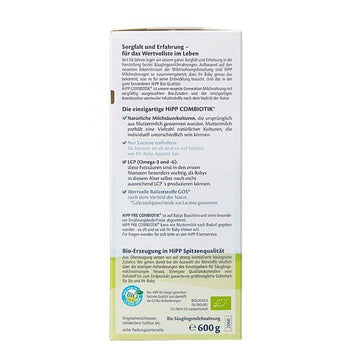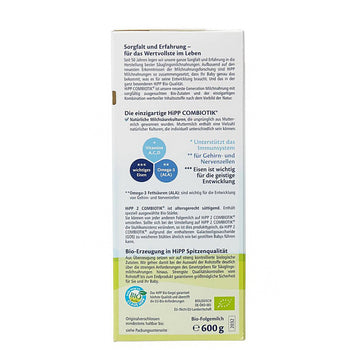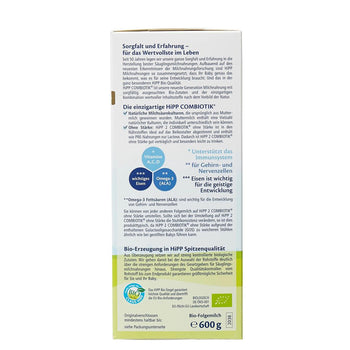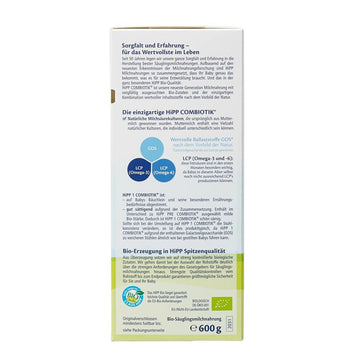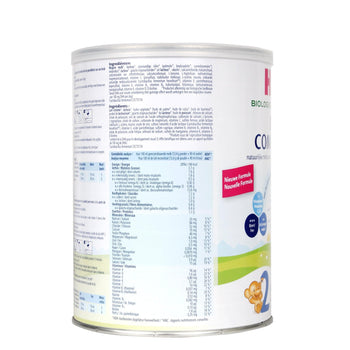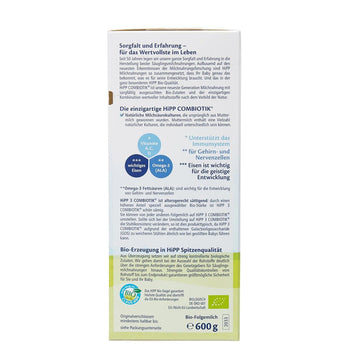As a new parent, you may wonder when to introduce solid foods alongside formula. This milestone plays a crucial role in a baby's growth, helping to establish lifelong healthy eating habits. While formula provides essential nutrients, transitioning to solids is an exciting and important step. Knowing when and how to introduce these foods can make the process smoother and more beneficial for your baby.
When to Introduce Solids?
The American Academy of Pediatrics (AAP) recommends starting solid foods around six months of age. However, every baby develops at their own pace. Some may be ready as early as four months, while others may need until seven or eight months.
Signs Your Baby Is Ready for Solids
Your baby may be ready to start eating solids if they show the following signs:
✔ Good head control – They can hold their head up steadily.
✔ Sitting with support – This helps with safe swallowing.
✔ Interest in food – Watching you eat or reaching for your food.
✔ Loss of tongue-thrust reflex – They no longer push food out with their tongue.
Why Timing Matters
Before 4 Months: Too Soon
Introducing solids too early can lead to:
✖ Digestive discomfort – Babies' digestive systems are still developing.
✖ Increased allergy risk – Early exposure to certain foods may raise allergy chances.
✖ Higher obesity risk – Extra calories from solids can lead to excessive weight gain.
Between 4-6 Months: The Right Time
At this stage, babies' digestive systems are maturing, and they begin developing motor skills for eating. Introducing gentle, easy-to-digest foods like iron-fortified cereals and purees can support their growth while formula remains their main nutrition source.
Best First Foods for Babies
Start with single-ingredient foods and wait a few days before introducing another to check for allergies. Some great first foods include:
🍚 Iron-fortified baby cereal – Mixed with formula for a familiar taste.
🥕 Pureed vegetables – Carrots, sweet potatoes, and peas are nutrient-rich choices.
🍌 Pureed fruits – Bananas, apples, and pears provide fiber and vitamins.
🥑 Mashed avocado – A great source of healthy fats for brain development.
Nutritional Benefits of Cereal and Purees
The early foods you introduce help shape a child's nutritional foundation. Iron-fortified cereals and purees provide essential nutrients for physical and cognitive development.
Iron and Brain Development
Iron is crucial for brain growth, especially between six to twelve months, when cognitive functions are rapidly developing. While formula provides iron, additional sources like iron-fortified cereals help maintain optimal levels. Iron deficiency during this stage may increase the risk of developmental delays.
Fiber and Gut Health
Pureed vegetables and fruits introduce fiber, which supports digestion and prevents constipation. A fiber-rich diet from an early age promotes a healthy gut, reducing the risk of digestive issues later in life.
Healthy Eating Patterns
Early exposure to different flavors and textures encourages healthy eating habits. Babies introduced to a variety of foods are more likely to enjoy fruits, vegetables, and whole grains as they grow, reducing dependence on processed foods.
Formula’s Role in the Transition
Even as solids are introduced, formula remains the primary source of nutrition throughout the first year. Think of solids as an opportunity to explore flavors and textures rather than a replacement for formula.
✔ Balanced nutrition – Formula ensures babies receive essential vitamins and minerals.
✔ Prevents overeating – Most of their calories should still come from formula.
✔ Supports hydration – Babies get most of their fluids from formula, preventing dehydration.
Helping Your Baby Adjust to Solids
Every baby adapts at their own pace. Here are some tips to ease the transition:
👶 Start small – Offer just one or two spoonfuls at first.
🥣 Mix with formula – Familiar flavors make the change easier.
⏳ Introduce one food at a time – Helps identify any allergies.
🔄 Gradually change textures – Begin with thin purees and slowly thicken them.
💡 Stay flexible – Some days your baby may eat more, some days less—and that’s okay!
Can Early Solids Prevent Allergies?
Research suggests that introducing common allergens like eggs, peanuts, and dairy between 4-6 months—while continuing formula—may help lower allergy risks. However, if there’s a family history of allergies, consult your pediatrician first.
What If My Baby Becomes a Picky Eater?
Babies exposed to a variety of flavors early on are more likely to develop a taste for healthy foods. Offering a diverse selection can help prevent picky eating habits later in life.
Final Thoughts
Starting solids is an exciting milestone, but there’s no rush. Follow your baby’s cues, keep formula as their main source of nutrition, and introduce nutrient-rich foods at a comfortable pace. Enjoy exploring new flavors together—this is the start of a lifelong journey toward healthy eating!















